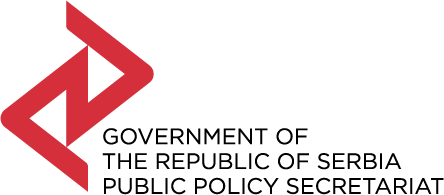In order to prepare itself for the process, the Republic of Serbia as an EU candidate country develops a document entitled ‘Economic Reform Programme’ (ERP) in the pre-accession period. The Republic of Serbia already has experience in the development of this strategic document, while the fifth cycle of ERP development for the period 2019-2021 is underway.
If we analyse a broader context, economic governance entails the definition and prioritisation of structural reforms with a view to eliminating obstacles to economic growth and development, as well as to the boosting of competitiveness of the business sector. Structural reforms within Chapter 4 of the ERP 2019-2021 are organized under eight key areas in accordance with the guidelines of the European Commission (EC), namely: the reform of energy and transport markets; sectoral development; the business climate and the fight against the black economy; research, development and innovations, and digital economy; trade reforms; education and skills; employment and labour market, and social protection and inclusion.
The ERP is a rolling programme, which means that each new cycle of its development needs to some extent to ensure continuity in the area of priorities. Selected structural reforms are in line with priorities defined in national documents, national and regional strategies, key documents in the process of the Republic of Serbia’s accession to the EU, and recommendations of the Economic and Financial Affairs Council (ECOFIN Council).
With a view to providing the broadest consensus possible in the selection of structural reforms, intensive inter-departmental consultations have been carried out with ERP coordinators in line institutions during the preparation of the Preliminary list of structural reforms for the ERP 2019-2021.
The preliminary list of structural reforms which comprises 20 structural reforms will be presented to the public during the period 14-28 November 2018. The draft ERP 2019-2021 will be publicly presented before its official adoption by the Government of the Republic of Serbia, after which it will be forwarded to the EC by the end of January 2019.
The ERP will be examined together with representatives of the EU, more precisely with ministers of finance and economy, representatives of central banks of EU member states, and responsible European institutions in the course May 2019 within the economic dialogue framework at the meeting of the ECOFIN Council during which new recommendations for participants in the process (Western Balkans and Turkey) will be adopted.
We would like to ask all the interested stakeholders to send their comments and suggestions regarding the Preliminary list of structural reforms to the following e-mail address: erp@mfin.gov.rs by 28 November 2018.
Preliminary list of structural reforms (SR) ERP 2019-2021
The latest document ERP 2018-2020 as well as the ECOFIN Council recommendations of May 2018 can be found at the following web pages:
ERP 2018-2020
Recommendations of the ECOFIN Council

